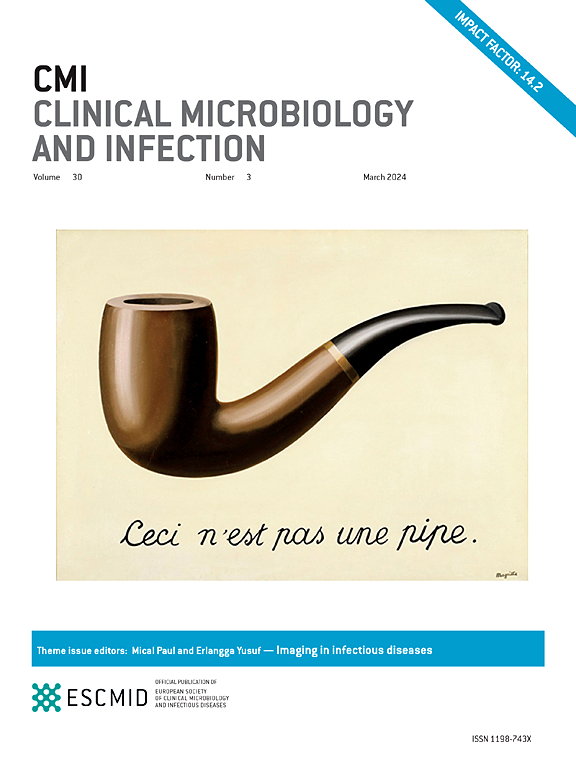Scientific misconduct in infectious diseases—European Society of Clinical Microbiology and Infectious Diseases survey
IF 10.9
1区 医学
Q1 INFECTIOUS DISEASES
引用次数: 0
Abstract
Objectives
We aimed to evaluate the prevalence and perception of scientific misconduct in infectious diseases (ID) and clinical microbiology (CM), as reported by the ID/CM community.
Methods
An anonymous online European Society of Clinical Microbiology and Infectious Diseases survey circulated among society members from October 2023 to June 2024; the questionnaire included data on participants' views on their own and their colleagues' scientific misconduct in the last 5 years.
Results
The survey received 220 responses. Responders were 73% ID physicians, 52% men, 56% aged 35–54 years, and represented 48 countries, mainly European (126 participants). The vast majority of participants (78%) reported that they did not personally commit scientific misconduct, whereas 54% reported witnessing misconduct by colleagues in their field. The most commonly committed misconduct by both responders and their colleagues was misconduct of authorship rules, 14% and 41%, respectively. Overall, 18% reported witnessing misleading reporting and 14% reported witnessing nonaccurate reporting of conflict of interest. Nevertheless, the majority (>60%) of responders reported high confidence in the integrity of published work in the field of ID/CM. Approximately one-third of responders were not aware of the European Society of Clinical Microbiology and Infectious Diseases ethics advisory committee as an authority to which members can report misconduct.
Discussion
Scientific misconduct, mostly related to violation of authorship rules, seems to be common in ID/CM. Efforts to improve scientific integrity should be made to keep trust in the scientific process.
传染病领域的科学不端行为--欧洲临床微生物学和传染病学会(ESCMID)调查。
目的我们旨在评估传染性疾病(ID)和临床微生物学(CM)界报告的科学不端行为的发生率和看法:在 2023 年 10 月至 2024 年 6 月期间,在学会成员中分发了一份匿名在线 ESCMID 调查问卷;问卷内容包括参与者对其本人及其同事在过去 5 年中的科学不端行为的看法:调查共收到 220 份回复。回答者中73%为内科医生,52%为男性,56%年龄在35-54岁之间,代表48个国家,主要是欧洲国家(126人)。绝大多数参与者(78%)称他们本人并未实施科学不端行为,而54%的参与者称目睹了其领域内同事的不端行为。答卷人及其同事最常实施的不当行为是违反作者资格规定,分别占 14% 和 41%。总体而言,18%的人报告目睹了误导性报告,14%的人报告目睹了不准确的利益冲突报告。尽管如此,大多数受访者(>60%)表示对 ID/CM 领域已发表论文的诚信度很有信心。约有三分之一的受访者不知道 ESCMID 伦理咨询委员会是成员可以举报不当行为的权威机构:结论:科学不端行为似乎在 ID/CM 领域很常见,主要与违反作者身份规则有关。应努力提高科学诚信度,以保持对科学进程的信任。
本文章由计算机程序翻译,如有差异,请以英文原文为准。
求助全文
约1分钟内获得全文
求助全文
来源期刊
CiteScore
25.30
自引率
2.10%
发文量
441
审稿时长
2-4 weeks
期刊介绍:
Clinical Microbiology and Infection (CMI) is a monthly journal published by the European Society of Clinical Microbiology and Infectious Diseases. It focuses on peer-reviewed papers covering basic and applied research in microbiology, infectious diseases, virology, parasitology, immunology, and epidemiology as they relate to therapy and diagnostics.

 求助内容:
求助内容: 应助结果提醒方式:
应助结果提醒方式:


